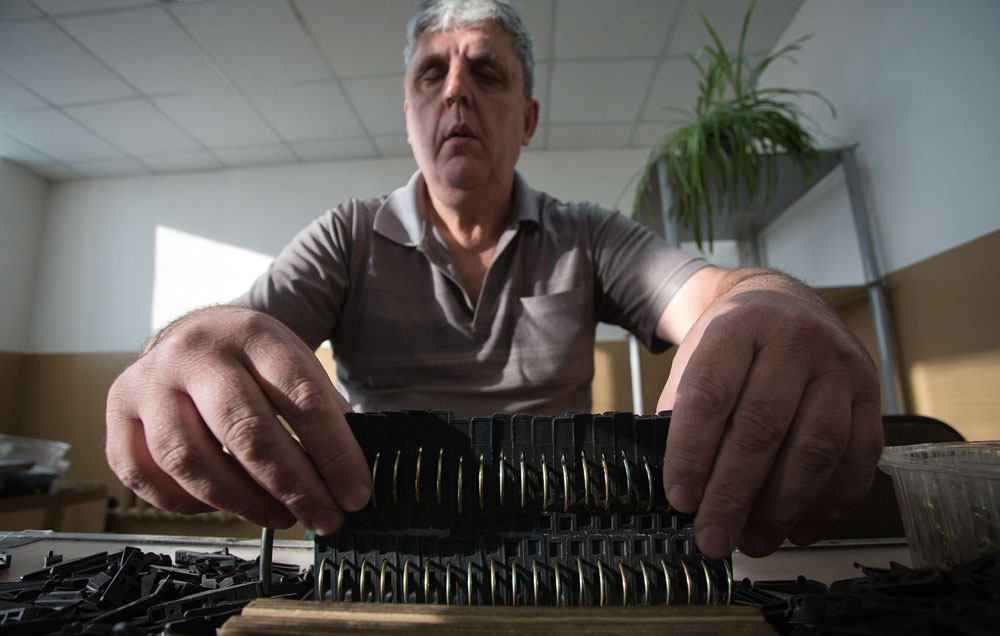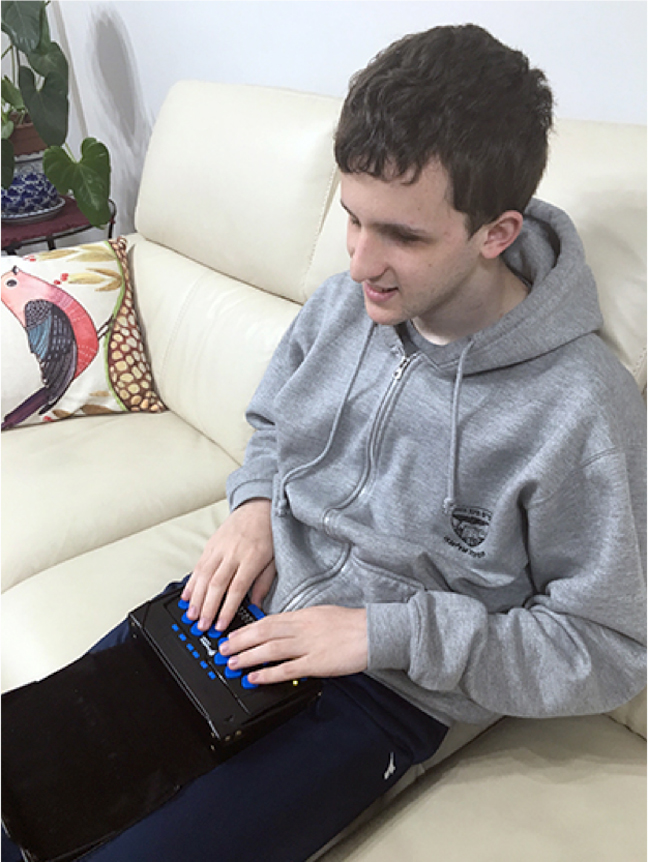
A visually-impaired worker gathering clothespins in a shop of the Obmytposhiv manufacturing enterprise of the All-Russian Association for the Blind.
Dmitry Feoktistov / TASSRussia, like most other countries, faces the pressing problem of how to bring people with disabilities into the workforce and find gainful employment. The most financially vulnerable part of Russian society amounts to a little less than 10 percent of the total population. According to official figures, 12.9 million people in Russia are disabled. Around 2.4 million of them are working.
In recent years, it has become easier for people with disabilities to find a job. Around 18,000 vacancies out of 317,000 available positions are open for job seekers with disabilities, on the recruitment website HeadHunter.ru.
This change is happening because of the greater involvement of people in issues concerning the differently abled. Russian television regularly shows programmes dedicated to people with disabilities, portraying them as talented and capable members of society who can
"Visually challenged (blind) programmers are in demand; and have a great future," says Andrei Yakovlev, development director at the Elita Group, the first Russian developer of smartphones (Elsmart) and portable computers (ElBraille) for the blind.
ElBraille is a portable computer for the blind, with a braille display and all the necessary software. This Russian invention has already interested many parties abroad. Orders for 1,000 devices have already been received from the U.S., France,
Gadgets for visually challenged people have been developed by those who could not see themselves. A team of programmers and developers has been set up over the past three years. Earlier, the company, founded by the blind entrepreneur Nusret Adigezalov, worked as a distributor of foreign equipment manufacturers.
"There have, however, been cases when a man who bought
People with disabilities are responsible for reviving some aspects of historic craft making in Russia. As part of the project “Avoska
Perspektiva, a Russian non-governmental organization, has been advocating for the rights of disabled people in Russia since 1997 and also has been assisting them in their job hunt: it organizes
"We are pioneers in this field [the recruitment of people with disabilities] and we’ve been doing this for 13 years now,” says Sofya Pak, a project coordinator at Perspektiva.

A blind programmer Adi Kushner at work. Source: Personal archive
Pak says that it is now much easier for people with disabilities to find work compared to before. "Large international businesses are reasonably
A total of 458 people with disabilities seeking employment turned to Perspektiva in Moscow in 2015. Among them, 154 people have found work.
"Thirty or 40 percent successfully finding employment constitutes a normal figure for us,” says Pak. “We recommend to many [people that come to us] to study. For example, take English courses or agree to a part-time job."
Based on the list of vacancies published on the organization’s website, it is possible to get a job as a 3D designer working remotely with a salary of $1,200 or as an SMM-Manager, also remotely, with a salary of $500 during the probationary period. Additionally, there are often listings for cooks, client managers,
Unfortunately, there are not many openings for applicants who are both deaf and blind. When positions are available the salary offered to them is often much lower, usually about $150.
According to Pak, the most common mistake among disabled job seekers is an unsuitable strategy of self-presentation.
"It's important that a candidate not focus on the disability and its difficulties, but instead talk about how they can compensate for it," Pak says.
Many visually challenged people, for example, can work in the Microsoft Office, and the employer can even save money by hiring
A great deal depends on the personal desires of a person with disabilities. First, they need to be motivated to work, said Yulia
"Initially, less than 10 percent of deaf and blind people of working age that we interview want to work,” says
All rights reserved by Rossiyskaya Gazeta.
Subscribe
to our newsletter!
Get the week's best stories straight to your inbox